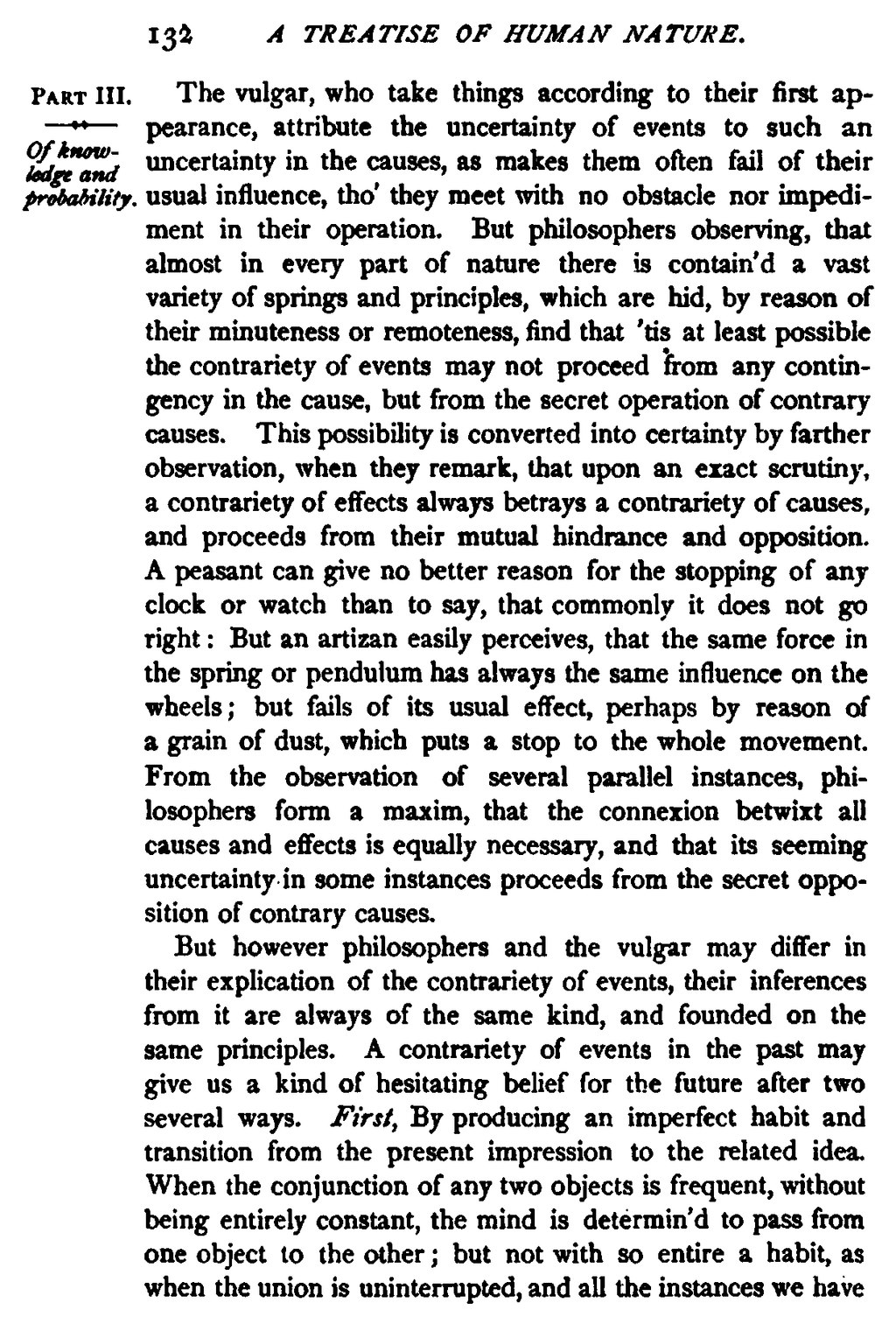The vulgar, who take things according to their first appearance, attribute the uncertainty of events to such an uncertainty in the causes, as makes them often fail of their usual influence, tho' they meet with no obstacle nor impediment in their operation. But philosophers observing, that almost in every part of nature there is contain'd a vast variety of springs and principles, which are hid, by reason of their minuteness or remoteness, find that 'tis at least possible the contrariety of events may not proceed from any contingency in the cause, but from the secret operation of contrary causes. This possibility is converted into certainty by farther observation, when they remark, that upon an exact scrutiny, a contrariety of effects always betrays a contrariety of causes, and proceeds from their mutual hindrance and opposition. A peasant can give no better reason for the stopping of any clock or watch than to say, that commonly it does not go right: But an artizan easily perceives, that the same force in the spring or pendulum has always the same influence on the wheels; but fails of its usual effect, perhaps by reason of a grain of dust, which puts a stop to the whole movement. From the observation of several parallel instances, philosophers form a maxim, that the connexion betwixt all causes and effects is equally necessary, and that its seeming uncertainty in some instances proceeds from the secret opposition of contrary causes.
But however philosophers and the vulgar may differ in their explication of the contrariety of events, their inferences from it are always of the same kind, and founded on the same principles. A contrariety of events in the past may give us a kind of hesitating belief for the future after two several ways. First, By producing an imperfect habit and transition from the present impression to the related idea. When the conjunction of any two objects is frequent, without being entirely constant, the mind is determin'd to pass from one object to the other; but not with so entire a habit, as
when the union is uninterrupted, and all the instances we have